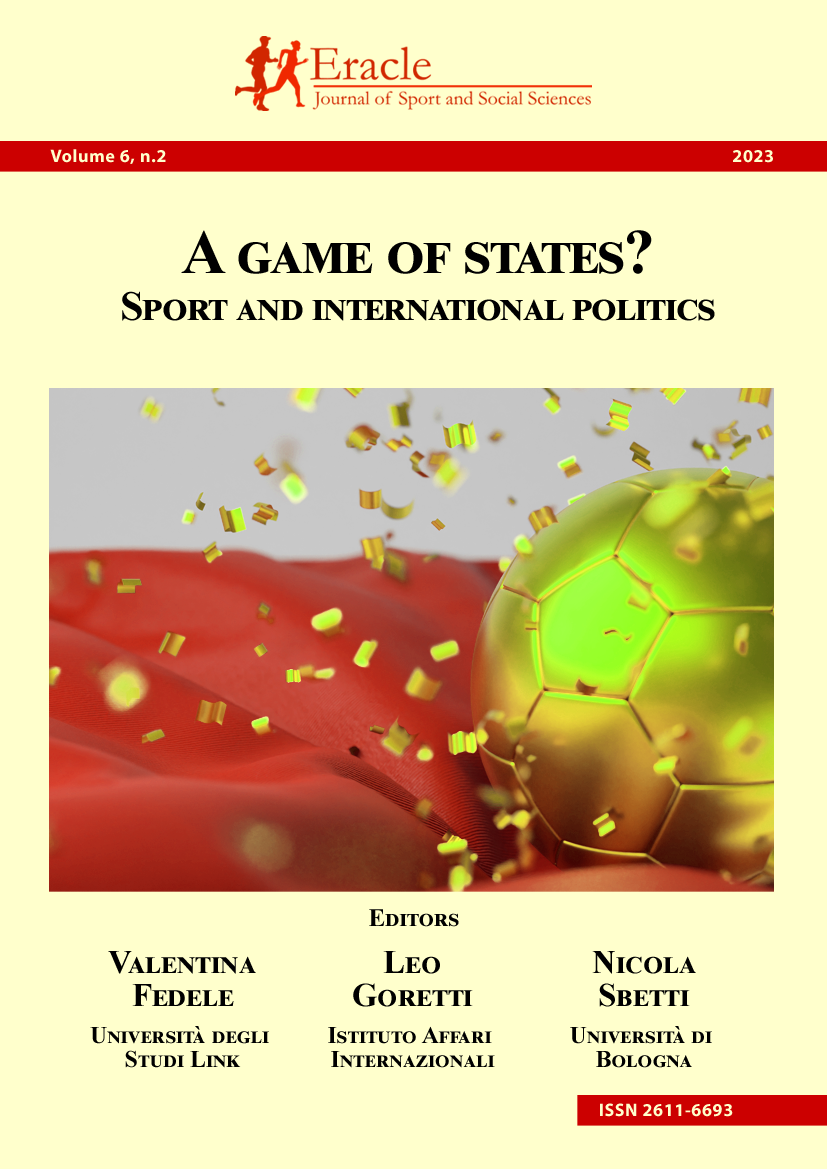Il futuro del calcio in Cina. Tra esperimenti sociali, scandali e fallimenti
Abstract
Since the end of the 1970s, when it was already preparing for the ‘great opening’, China has sought to legitimize itself before the international community through various strategies, including seeking international recognition in sport and attempting to rapidly extend its influence over transnational sporting institutions by using and combining soft power, national status and the internal development of Olympic disciplines and, in particular, football. Already Deng Xiaoping, a passionate lover of the ‘beautiful game’, after the Cultural Revolution had rehabilitated football and tried to rebuild a Chinese football movement. But it was with the election of Xi Jinping as General Secretary of the Communist Party of China in 2012 that a real strategy was launched to develop Chinese football through structural reforms. Investment, participation and media consumption in football have increased since the implementation of this reform plan and the revitalization of football has become a key strategic objective for China. The continuing failures of the men’s senior national team, scandals – however – and, in recent times, the Covid-19 pandemic with the subsequent downturn in the Asian giant’s economic growth, have brought the contradictions of Chinese football to the surface. Our contribution will attempt to highlight the entanglements that link football to the complex and varied Chinese power system.
